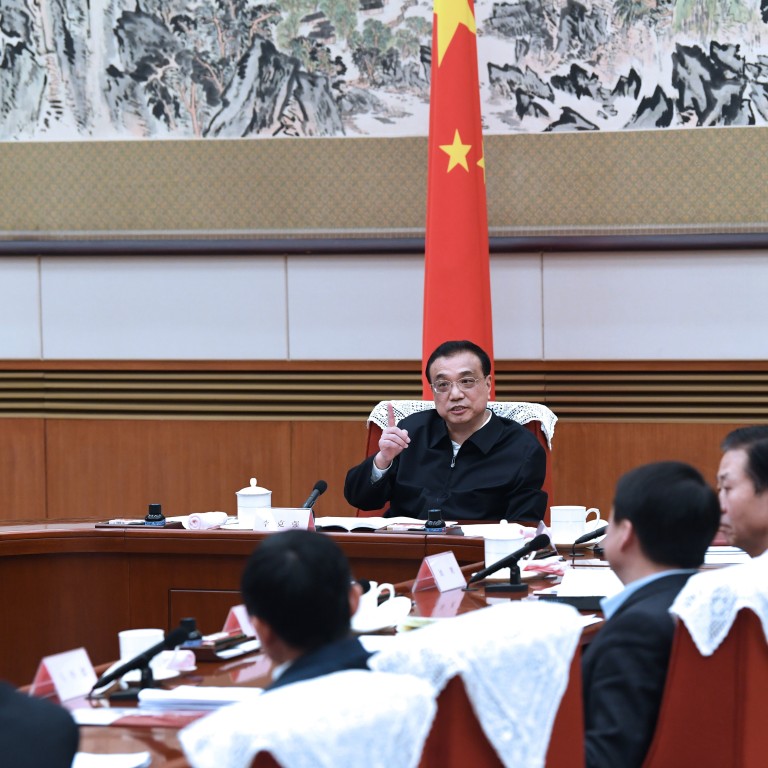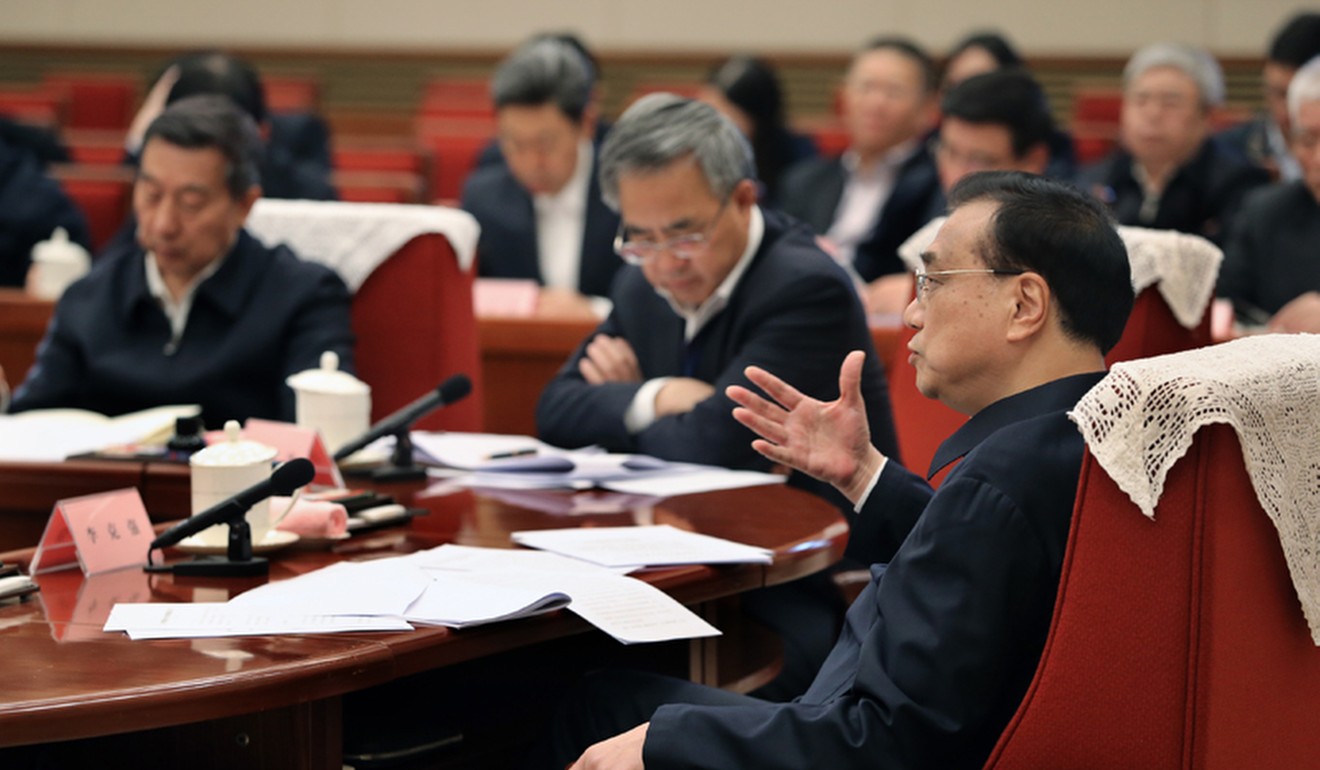
Chinese Premier Li Keqiang invites harsh words on economy from private sector top brass
- Premier Li listens to liberal economists and private business delegates for feedback on his government work report
- Li’s hearing came as China economy faces big challenges in 2019
Chinese Premier Li Keqiang has asked economists and entrepreneurs to critique his government work report, which is expected to lay out the government’s economic policies for 2019.
Li invited some of China’s most celebrated figures in business and economics to give him feedback that “may hurt the ear or stab the heart”, at a time when China’s economy continues to face serious headwinds.
Those present included Alibaba chairman Jack Ma Yun, China First Heavy Industries’ chairman Liu Mingzhong, Tao Dong, senior adviser and economist with Credit Suisse Private Banking Asia-Pacific, and Yu Yongding, an academic at the Chinese Academy of Social Sciences (CASS), according to a detailed record published on the Chinese government website.
Ma, the founder of Alibaba, told Li that his words might be harsh and unpleasant, but that he was not speaking not on behalf of the 30 million merchants on his company’s e-commerce platforms.
“We must allow the people and the market players to ‘complain’, and for the words to be harsh,” said Li.

“Not only must the government allow everyone to speak, it must listen carefully. If it is the right thing to do, it should adjust its policies. If it isn’t right then it needs to be explained why. We can work together to gather the greatest consensus and leverage proactiveness from all sides,” he said.
Alibaba owns the South China Morning Post.
Yu, the CASS economist, told Li that Beijing must try everything possible to arrest a deepening economic slowdown, while Tao from Credit Suisse said the government has to find ways to “boost investment confidence”.
China’s economy is expected to slow even further this year after posting decade-low growth in the third quarter of 2018, as the trade war with the United States started to take a toll on exports and domestic demand.
Car sales dropped last year for the first time in almost 30 years, while iPhone maker Apple issued its first revenue warning in nearly 12 years, citing weak Chinese demand.
Both exports and imports fell in December, while manufacturing activity contracted for the first time in 19 months, raising questions about Beijing’s ability to counter the rapid slowdown.
Li warned of a difficult year ahead for the Chinese economy and vowed to increase investment in public services and infrastructure, as well as expand consumption while avoiding a “flood-like” stimulus to counter the downturn.
The premier’s working report is expected to be delivered in March at the plenary sessions of the National People’s Congress, the country’s legislature, and the Chinese People’s Political Consultative Conference.
In the last few days, Beijing officials have stepped up efforts to reassure the public that they will do whatever is necessary to bring the economic slowdown under control.
Nathan Chow, strategist for China and Hong Kong at DBS Research, said the premier’s meeting with market practitioners would send a positive message to the markets that the government is committed to stabilising the economy.
“There was a panic in the private sector when there were stories about state firms taking over,” Chow said. “We’ve seen the president and the premier coming out to promote their support for private businesses. I think this meeting could be an extension of that.”
China is due on Monday to report fourth-quarter GDP figures that are expected to show a further slowdown from the 6.5 per cent growth rate posted in the third quarter.
A number of Chinese provinces – from coastal Jiangsu to central Henan – have downgraded their economic growth targets for 2019, as the cold reality of the trade war with the US continues to bite.
Given the uphill challenge facing the government, Chow said it may also be keen to listen to different ideas, even some “out of the box” suggestions from those who are usually distant from policymaking circles.
“[This is because] there are many hurdles this year for the economy, that is in addition to the leftover problems like the massive debt piles from the last downturn,” Chow said. “If growth falls below 6 per cent this year, it may trigger a panic.”
Vice Premiers of the State Council Han Zheng, Sun Chunlan, Hu Chunhua, and Liu He also attended the meeting along with the premier, according to the briefing.

